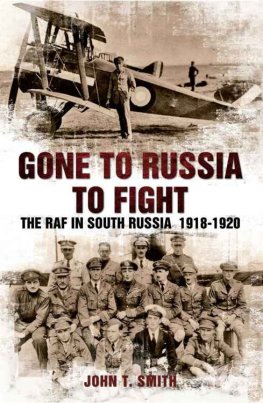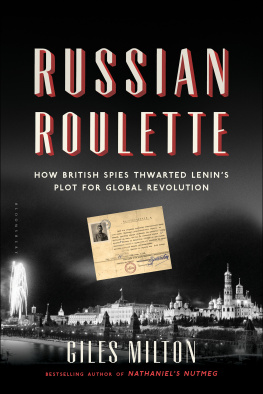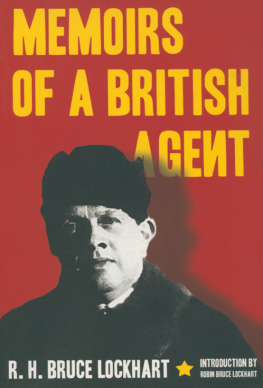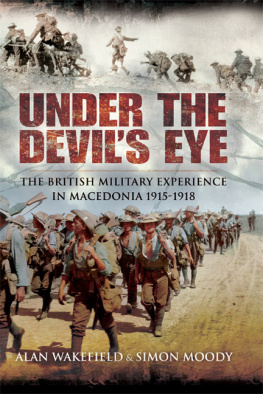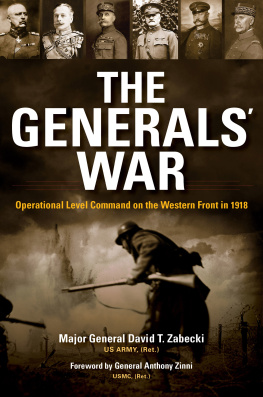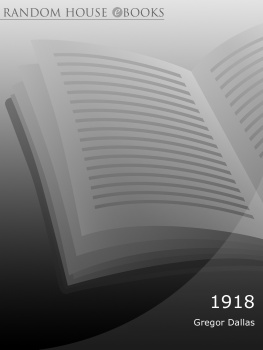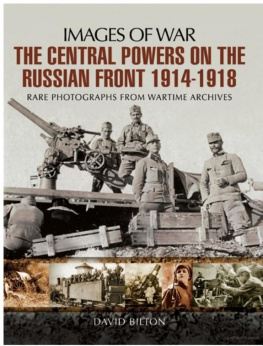After three years of great loss and suffering on the Eastern Front, Imperial Russia was in crisis and on the verge of revolution. In November 1917, Lenins Bolsheviks (later known as Soviets) seized power, signed a peace treaty with the Central Powers, and brutally murdered Tsar Nicholas (British King Georges first cousin) and his children so there could be no return to the old order. As Russia fractured into loyalist White and revolutionary Red factions, the British government became increasingly drawn into the escalating Russian Civil War after hundreds of thousands of German troops transferred from the Eastern Front to France were used in the 1918 Spring Offensive which threatened Paris. What began with the landing of a small number of Royal Marines at Murmansk in March 1918 to protect Allied-donated war stores quickly escalated, with the British government actively pursuing an undeclared war against the Bolsheviks on a number of fronts in support of British trained and equipped White Russian Allies.
At the height of British military intervention in mid-1919, British troops were fighting the Soviets far into the Russian interior in the Baltic, North Russia, Siberia, Caspian and Crimea simultaneously. The full range of weapons in the British arsenal were deployed including the most modern aircraft, tanks and even poison gas. British forces were also drawn into peripheral conflicts against White Finnish troops in North Russia and the German Iron Division in the Baltic. It remains a little known fact that the last British troops killed by the German Army in the First World War were killed in the Baltic in late 1919, nor that the last Canadian and Australian soldiers to die in the First World War suffered their fate in North Russia in 1919 many months after the Armistice.
Despite the award of five Victoria Crosses (including one posthumous) and the loss of hundreds of British and Commonwealth soldiers, sailors and airmen, most of whom remain buried in Russia, the campaign remains virtually unknown in Britain today. After the withdrawal of all British forces in mid-1920, the British government attempted to cover up its military involvement in Russia by classifying all official documents. By the time files relating to the campaign were quietly released decades later there was little public interest. Few people in Britain today know that their nation ever fought a war against the Soviet Union. The culmination of more than 15 years of painstaking and exhaustive research with access to many previously classified official documents, unpublished diaries, manuscripts and personal accounts, author Damien Wright has written the first comprehensive campaign history of British and Commonwealth military intervention in the Russian Civil War 191820.
Damien Wright traces his lifelong interest in military history back to his early childhood when he was shown a photograph of his Grandfather in Australian Light Horse uniform and allowed to take his medals to school for show and tell. His interest in the British campaigns in Russia were first piqued in his teens when reading a chronological list of Australian recipients of the Victoria Cross which showed two seemingly anomalous decorations for North Russia 1919 listed separately from the First World War awards. Some further digging revealed that both Australian VC recipients, one of whom was a fellow South Australian, had volunteered to serve in the same unit of the British Army. Further research proved difficult, so little had ever been published and the campaign seemingly largely unknown and ignored. The product of many years of exhaustive research, Churchills Secret War with Lenin is his first book.
Churchills Secret War with Lenin
British and Commonwealth Military Intervention in the Russian Civil War, 191820
Damien Wright
Helion & Company
Helion & Company Limited
26 Willow Road
Solihull
West Midlands
B91 1UE
England
Tel. 0121 705 3393
Fax 0121 711 4075
Email:
Website: www.helion.co.uk
Twitter: @helionbooks
Visit our blog at http://blog.helion.co.uk/
Published by Helion & Company 2017
Cover designed by Paul Hewitt, Battlefield Design ( www.battlefield-design.co.uk )
Text Damien Wright 2017
Photographs as individually credited
Maps drawn by George Anderson Helion & Company 2017
Front cover: Captain Francis Lord, MC, MM, AIF attached Dunsterforce, on the lookout for Ottoman troops from an Armenian defensive position near Baku, September 1918 (Australian War Memorial G00803). Back cover: advertisement published in The Times , 10 April 1919, calling for volunteers for the North Russia Relief Force. The advertisement was published in newspapers throughout Britain (public domain).
Every reasonable effort has been made to trace copyright holders and to obtain their permission for the use of copyright material. The author and publisher apologise for any errors or omissions in this work, and would be grateful if notified of any corrections that should be incorporated in future reprints or editions of this book.
ISBN 978-1-913118-11-2
eISBN 978-1-911512-10-3
Mobi ISBN 978-1-913118-11-2
British Library Cataloguing-in-Publication Data.
A catalogue record for this book is available from the British Library.
All rights reserved. No part of this publication may be reproduced, stored in a retrieval system, or transmitted,
in any form, or by any means, electronic, mechanical, photocopying, recording or otherwise, without the express written consent of Helion & Company Limited.
For details of other military history titles published by Helion & Company
Limited, contact the above address, or visit our website: http://www.helion.co.uk
We always welcome receiving book proposals from prospective authors.
Tsar Nicholas II of Russia and King George V of Great Britain. (Public domain)
Dedicated to all those who served and suffered as a result of the Russian Civil War
Many skilful writers on Russia have eulogized her with descriptions of her vastness, her whiteness, her simplicity, her cruelty. With these more gifted people I cannot compete. But I can still say that Russia drew me with her mystery, calls to me even now after all these years with her mystery. The spell which she cast upon me will never die.
We may not have succeeded in what we had gone to do, but we tried our hardest and, successful or not, a tribute is due to all those personnel, officers and civilians, Russian as well as British, who gave of their best for a cause which we at any rate considered a just one.
Without their loyal help I alone could have done nothing.
Brigadier H. N. H. Williamson, DSO, MC, RA.
British Military Mission, South Russia, 191920


